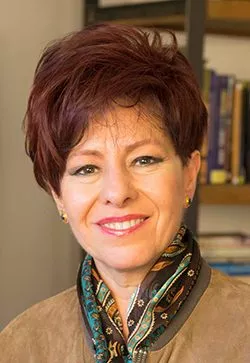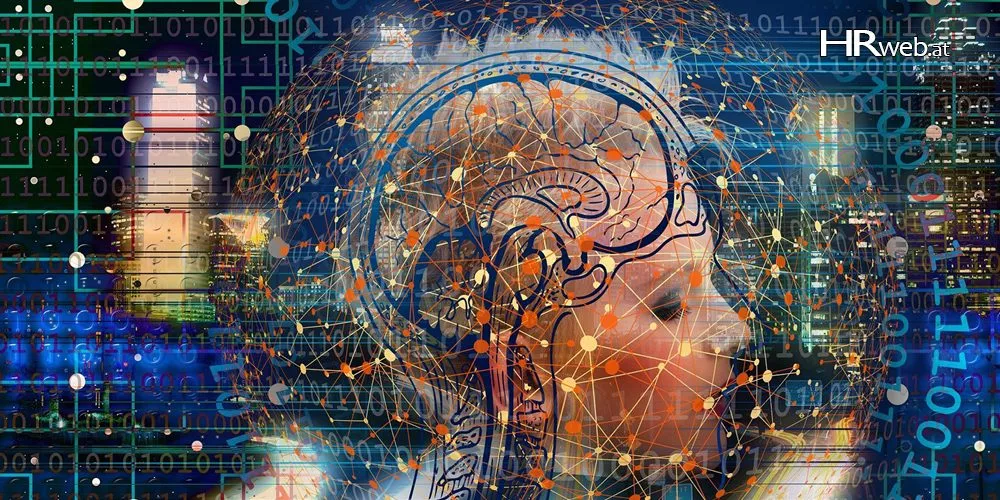Awareness and neuroscience
We as human beings have almost limitless capacities to unveil our potential. Today in the light of insights we have through neuroscience and new technologies in medical and psychological fields we have a clearer understanding of how our systems work. For example fMRI studies allow researchers to observe what is happening in the brain when we are experiencing a feeling, looking at a picture or listening music. We have evidence that when we teach or share a piece of knowledge almost all brain areas are involved.
Author: Zerrin Baser, M.D., MCC (CEO –Denge Merkezi Co.)
Our brain functions via building neural connections – wiring and creating connectomes which are commonly referred to as ‘interconnected wholeness’ with 100 billion neuron cells involved. This simply means that there is a strong and multi-directional network mechanism in our brain systems: the brain is the organ that runs the show with strong networks.
In the 21st century, we all live in the ‘World Wide Web’ of humanity and human interconnectedness based on neural networks in our brain. This web of interconnectedness renders situations in life more complex and difficult to deal with. In any given moment we process very small piece of information- the data in relation to what comes in through our perceptual channels. We are exposed to more data than ever. Social media, mails, requests from peers or managers blow our minds plus the things that need attention to balance business and personal life. To be more adaptable, flexible, agile, and effective, we are called to increase our awareness of how our brain is networked by asking ourselves some key basic questions, if we were to be successful leaders in what appears to be our fast changing environment:
- Why is it important to be an intelligent leader and produce intelligent leadership?
- What are some basic capacities we need to tap more of and more deeply?
- What are some perspectives we need take to look at our human interconnectedness?
- What do we need to explore more about ourselves?
- What are organizations and employees requesting from leadership?
These five questions are key to start building and increasing our awareness, which is the capacity to give meaning to who we are as leaders at any area of focus at the present moment based on perceived energy and information through our five senses. Being aware requires linking different areas of the brain. That specific moment requires to prioritize what we pay attention to or what to fully observe. For instance if you are reading these lines and listening music at the same time if one word from the song reminds you a past memory you will not be able to grasp what you are reading simultaneously. We need to set the priority and choose what to observe in any given moment. When we use our mind to direct our attention to a specific thing, then at that specific point we pay attention to neural firing flows, and neural connections grows. Becoming aware of something creates a neural pathway; this is the function of neuroplasticity. A mind that is exposed to a new idea never returns to its original state. Brain changes its function and structure. This happens all the time. There are slightly different definitions of ‘Awareness Intelligence’ such as;
- ‘Self awareness is the skill of being aware of our thoughts, emotions, and values, moment to moment’1
- ‘Awareness IQ is an evolved and integrated concept that articulates a capacity to choicefully and masterfully use one’s awareness in the moment, to make most effective decisions, leading to the greatest satisfaction and the least reagret.’2
- ‘Awareness is the subjective experience of knowing within consciousness.’3
In general terms awareness intelligence is holding focus on what you choose and being aware of what for and opening and strengthening your capacity to be aware. Awareness is already known to us but is it consistent or easy to use? When people start working on using more of the awareness intelligence they experience more productivity and balance in all areas of their life. Learning how we give meaning to an experience is one of the very first steps to become more aware. Some of the most prominent techniques are ranging from meditation to observational exercises, from silence to daily life practices. Exercises specific to increasing awareness such as Wheel of Awareness Meditation3 proven by scientific research that when continuously practiced increases quality of life, and well being. Harnessing self-awareness will serve to lead the self before leading others.
Building the internal coach through awareness intelligence
When we coach someone what is happening in the brain chemistry? All of the above! Brain creates new neural pathways. This is where internal coach is being born.
The good news is: We have the capacity to develop and enhance our manifold intelligences. Latest research defines intelligence as ‘the human potential that is reflected in life in any area’. Howard Gardner challenged the only type of intelligence known until then (1980’s): intellectual intelligence. Instead, he introduced the multiple-intelligence perspective4. Today research shows that we have various types of awareness, qualities which range from emotional, to communication-specific, to somatic, to artistic, to ethical, to esthetic, to action, to linguistic, to intrapersonal, to spiritual, to existential intelligences, and the list continues to expand. Gardner defines intelligence as the, ‘bio-psychological potential to process information that can be activated in a cultural setting to solve problems or create products that are of value in culture’5
This development means that we need to expand our awareness of quality interactions with the self, with others, and with life more generally. In other words, humans need to become leaders in four main areas of life: physical, relational, the self and vision. The more we enhance our awareness in these four areas, the more we became leaders of these different areas. As human potentials we develop ourselves in two different directions vertical and horizontal. In horizontal development we develop skill sets, acquire new knowledge, expand our capacity in the area of expertise however in vertical development we look for new horizons and deepen our sense of being, meaning and purpose. Professional Coaching as defined by International Coach Federation (ICF) is ‘partnering with clients in a thought-provoking and creative process that inspires them to maximize their personal and professional potential’.6 Working with a coach for some defined time frame will support the client not only in the areas of best practice and continuous improvement but also tapping natural creative resources to generate innovation and to find ways to shift perspectives. In the long run, coaching creates internal experience for the client to evoke the internal coaching capabilities and that’s when we start coaching ourselves.
Some harsh facts about the business world
When we turn our focus on business life and, let’s say, we turn the flashlight on the role you assume as a leader, manager, HR specialist, or other, we notice the importance of leading with a whole range of different skills and perspectives, that is levels of awareness, than you probably used to previously. Studies show that generation Y, and most recently generation Z expect almost opposing leadership approaches to what generation X did7. A finding from a Gallup study shows a big company could save $60.3 million annually if its managers move their teams to the top quartile of engagement. To engage and coach employees, managers need development.8
More obvious and pervasive motivational issues and hence leadership challenge in organizations are found to be lack of trust, low engagement, dysfunctional communication, conflict, lack of loyalty, lack of respect to leaders and the role of leadership. People want to be seen, noticed, valued, and understood. People want to feel as being part of something bigger, align with the big vision, and experience the values they hold deeply. They are looking for meaning and human connectedness.
A Gallup 2016 study indicates that 82 percent of the employees see their leaders as uninspiring. Meanwhile, more than 40 billion US dollars are invested on leadership development programs worldwide every year. This result alone directs us to recall the ancient quote, ‘Know Thyself ’ stated at Temple of Apollo at Delphi.
The internal coach in business
One of the main areas to start with when it comes to building and increasing awareness intelligence is the self, or the mind of the leader. As Peter Drucker said ‘You can not manage other people unless you manage yourself’9. Today, human expectations and needs are not just about looking for strategies, people management, and about getting financial results right but as importantly about focusing on how your brain systems, mind, perceptions impacting on what you do and how you can lead yourself effectively and how to tap your intrinsic motivations, such that you can lead others in a more enriching and empowering way. In other words, building and increasing awareness intelligence is about having your internal coach ready to support you in being a successful leader.
How can you as the leader unveil one of our unique potentials: ‘Awareness Intelligence’?
There are many things in business life, in daily activities that distract or disrupt our awareness in the moment. Exploring ‘Awareness Intelligence’ with a systemic approach in four main areas physical, relational, self and vision/values is an integral perspective to start. Focusing on brain systems in relation to how our mind works, how we create reality, how we can use our innate capacities of being aware is a simple yet functional way. The role of attention and intention, the relevance of acceptance, resilience, presence, curiosity, creativity and compassion through looking from different lenses are ways to create meaningful and practical experience.
Re-uniting with one’s awareness potential with some practical tools, interactive exercises and coaching approaches are not only inspirational, but they also provide a deeper understanding of the concepts that enhance the leadership capacities.
Tipp
If you find any of what I have shared with you of value and would like to learn more about how to become a radar leader, join my virtual workshop:
- workshop „shifting your leadership narrative“
- at the Leadership Intelligence 4.0 Conference
- 15th – 19th February 2021
- organized by ICF Chapter Austria.
- http://bit.ly/Leadership-Intelligence-2021
Reference
- Rasmus Hougaard, Jacqueline Carter, The Mind of the Leader: How to Lead Yourself, Your People, and Your Organization for Extraordinary Results. (Harward Business Review Press 2018) Ch 2
- Susan English, Janice M Sabatine, Philip Brownell, Professional Coaching: Principles and Practice (Springer Publishing- 2019) Ch-The Coach as Awareness Agent: A Process Approach Dorothy E. Siminovitch
- Dr.Daniel Siegel., M.D. Aware The Science and Practice of Presence (Penguin Random House- Tarcherpeigee- 2018)
- Howard Gardner, Changing Minds ‘The Art and Science of Changing Our Own and Other People’s Minds (Harvard Business School Press 2006 ), 52
- Howard Gardner, Multiple Intelligences; New Horizons (Basic Books 1993), 36
- ICF www.coachingfederation.org/core-competencies
- Henrik Bresman and Vinika D. Rao, Harvard Business Review, ‘A Survey of 19 Countries Show How Generations X,Y, and Z Are-Aren’t Different’
- Jennifer Robison,Turn Your Company Into a Human Development Machine, www.gallup.com November 25,2020
- Peter F. Drucker Quotes – www.goodreads.com
Tap Your Internal Coach Through Awareness Intelligence
Guest Autor
 Tap Your Internal Coach Through Awareness Intelligence
Tap Your Internal Coach Through Awareness Intelligence
Zerrin Baser, MD, MCC: Medical doctor, ICF Master Certified Coach, Erickson International Senior Trainer- Transformational and Executive Coach, and Owner of Denge Merkezi Consultancy Co.
Dr. Baser has an impressive breadth of professional experience in health sector policies and in project management before starting her own business as a trainer and a coach in new human technologies. Besides her medical career Dr.Baser has been interested in personal and organizational development. She has been involved in related trainings for more than 20 years. She continues to provide programs and projects on human growth, leadership development, modeling human excellence, creativity, human productivity, mindfulness, perception and change management in companies. Dr. Baser has more than 7000 hours of coaching experience more of which is in executive, team, business and transformational coaching. She is working with companies to develop their next generation leaders.
She is proud of being in the service of human development and advancement while working with herself by receiving coaching, joining many other trainings and using many tools. Her profound motivation comes from witnessing the positive change in people and in organizations towards achieving their bigger visions.






